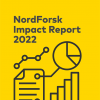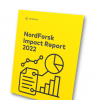
International research seminar: involving citizens in urban development - recent learnings from Nordic cities
29/09/2022 - 30/09/2022
Lappeenranta, Finland
Event A green Nordic region A socially sustainable Nordic region Register
Lappeenranta, Finland
Event A green Nordic region A socially sustainable Nordic region Register





